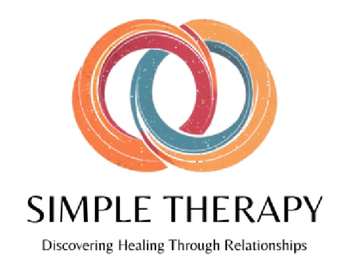Now Accepting Ambetter Clients
Group for Anxiety is Running! Sign up
Taking the First Step: What to Expect When Starting Therapy
Starting therapy is indeed a significant and brave step. Here are some key aspects to consider as you begin this journey.
THERAPY PROCESS
Olivia Greathouse
9/8/20242 min read


Written by Olivia Greathouse
Starting therapy can feel overwhelming and daunting. You might find yourself wondering whether therapy can truly help you. It's important to acknowledge the emotions that have brought you to this point—feelings of distress, disconnection, and frustration that impact your daily life. Beginning therapy is a courageous step toward hope and empowerment. But where do you start? Let’s explore the key aspects of beginning this journey.
1. Find the Right Therapist
When searching for a therapist, it’s essential to consider why you’re seeking therapy in the first place. Are you struggling with relationship issues? Are anxiety or depression symptoms becoming unmanageable? Do you need help processing past trauma? Or maybe you have the tools, but you want to deepen your self-understanding. Clarifying your needs will help you find a therapist whose expertise aligns with your goals.
Therapists use various approaches and styles, and while you don’t need to know the details of each one, prioritizing emotional safety and comfort is crucial. The right therapist will make you feel seen and heard. Your willingness to be open, honest, and vulnerable is the strongest predictor of a successful therapeutic outcome.
2. Book a Consultation or Intake Session
Once you’ve found a therapist who feels like a good fit, the next step is to schedule your first session. Many therapists offer a free 15-minute consultation, either by phone, virtually, or in person. This consultation allows both you and the therapist to discuss your current concerns, explore how therapy might work for you, and address any hesitations or resistance you may have. This conversation is about ensuring that you feel comfortable moving forward with this therapist. You’ll have the opportunity to share information, ask questions, and if it feels right, schedule your first session.
In some cases, you might skip the consultation and meet your therapist for the first time during an intake session. An intake session often mirrors a consultation but with more depth. The therapist will discuss informed consent, gather background information, and have more time to understand what brings you to therapy. Typically, an intake session lasts 60 minutes, compared to the 45-minute duration of regular sessions.
3. Be Open-Minded
Opening up about your inner world can be intimidating. It’s natural to feel nervous, unsure, or even confused as you begin this process. These feelings are normal and very common! While they might make you uncomfortable, try to stay open-minded and receptive as you interview and meet potential therapists. Give yourself the space to ask questions that matter to you and be prepared for potential challenges during treatment.
Ultimately, only you can determine if a therapist is the right fit for you and your needs. As you start your journey as a client, pay attention to how you feel during sessions. Look for signs of empathy, emotional safety, and acceptance. While the therapist’s approach and training are important, the strength of the therapeutic relationship is the key factor in achieving positive outcomes.
305 Smithville Church Rd
Suite B
Warner Robins, GA 31088
Contacts
info@simpletherapy4u.com
(478) 352-1165
